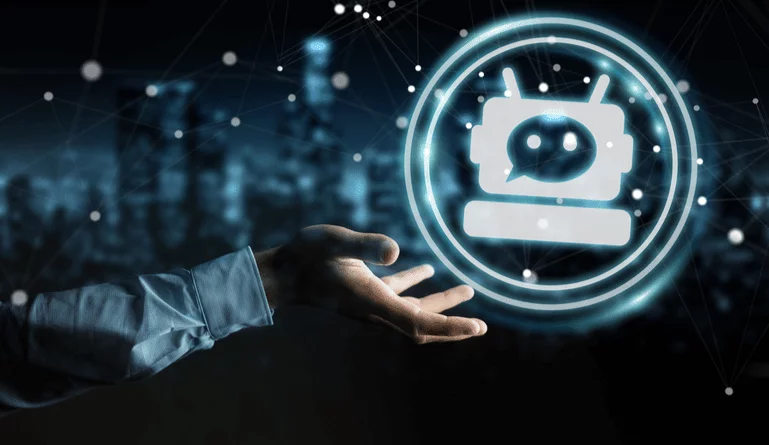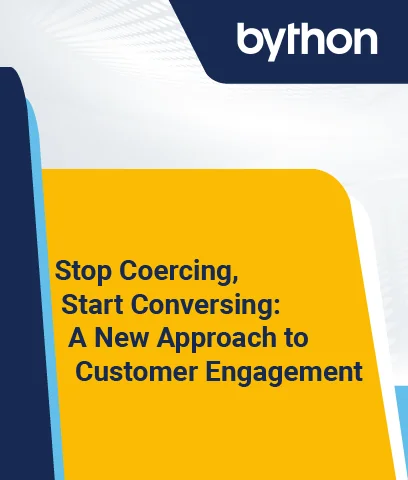A chatbot, when used properly for marketing purposes, is an unstoppable juggernaut. Gartner predicted in 2011 that by 2020 over 85% of the interaction between customers and enterprises will be handled by non-human support, such as chatbots. Chatbots are much more than just customer service robots. Chatbot marketing can also be used for lead generation, improving customer engagement, and for market research.
Why do we need chatbots?
The need for chatbots comes from many factors, such as the lower cost of providing services, creating consistency in corporate messaging, and non-stop marketing efforts to build brand awareness.
One of the main reasons why we need chatbots is that online customer service is a 24/7 support operation that never closes. The cost of providing this service using only human operators is prohibitive.
Human operators can be used in combination with chatbots to lower the overall costs. For example, if the customer service request cannot be handled properly by the chatbot, a customer can request human-operator assistance in these systems for more support. This need for humans is becoming less, as the artificial intelligence programming of chatbots and the ability to recognize native language is significantly improving.
Benefits of Chatbots in Customer Service Marketing
The benefits of chatbots are well proven in basic customer service; however, more benefits come from extending this interface and customer contact to include marketing efforts. Chatbots are widely used in banking and financial services sector. They are also used extensively in the travel industry and the automotive industry for customer service support.
One of the key trends, not to be missed, is that every customer service support incidence is also a potential marketing opportunity. For example, offering a discount coupon at the end of a chatbot session to thank the customer is an effective way to create sales revenue from this process. This is revenue that would otherwise be missed.
Chatbots Start the Sales Cycle
Chatbots may start the conversation with a customer before they would be willing to talk with a salesperson. There is a natural defense mechanism that rears up when a customer has the uncomfortable feeling of being sold something. It is instinctive, not to want to be manipulated with high-pressure sales tactics. With a chatbot, a customer can get questions answered, hears suggestions in a non-threatening way, and feels less intimidated. The power to stop the chat, at any moment, gives a customer full control over the process, which is very comforting.
Artificial Intelligence and Chatbots
Artificial intelligence (AI) is very useful when supporting chatbots because the algorithms can be designed to automatically improve with machine learning. Patterns in the data that are not obvious and counter-intuitive can be discovered by the AI programming.
AI is used to analyze large collections of customers’ profiles and interactions with the company that come from the chatbot use. This allows virtual customer profiles to be developed that can be used to predict customers’ needs. Using AI programming in this way, allows a company to make sales offers to potential customers that are the most likely to be buyers and to those that will become the best customers.
Data Mining of Big Data Collected by Chatbots
The data collected by one company’s use of a chatbot is interesting to analyze. Moreover, chatbot data is not limited to just one company. A gigantic amount of customer data is available from other companies that they collect by their chatbots and other data collection systems.
A practical application of these processes is using a company’s chatbot history and customer accounts data to generate a virtual customer profile of the type of person(s) who represents the company’s best customer. Then, by using data mining of Big Data from other systems, the company can identify, locate, and market the company’s products and/or services to acquire new customers that match the virtual best customer profiles.
Personalized Chatbots Improve Customer Retention
Chatbots that are designed well are exceptional at personalization. A chatbot can recognize a return customer, know everything about them, greet them by name, know what the bought before, and assist them in ways a human clerk would not be able to do.
Many studies having been done that show humans can quite easily create an emotional bond with a chatbot that is programmed to elicit such responses. Virtual assistants like Siri and Alexa are making many people comfortable talking to a chatbot. Chatbots are getting a lot better at mimicking human interactions so that they can pass the Turing test, which is the baseline used for being almost indistinguishable from human interactions.
Large Chatbot Focus Groups
Chatbots are not limited to one person’s use. Chatbots can be used for group interactions to carry on a focus-group conversation. A moderator can drive the conversation in a guided fashion that has virtually an unlimited number of live participants who ask questions and post comments.
Social Media and Messenger Chatbots
Marketing efforts on social media using chatbots are getting better results by using them in coordination with the instant messaging systems, such as using chatbots on Facebook Messenger.
Facebook Messenger has over 20 billion messages sent each month. There are over 300,000 messenger chatbots on the system.
This is the place where most consumers connect with brands. Using a chatbot on Facebook Messenger helps customers feel more confident by getting answers and help quickly. It gives the company’s a chance to sell products and then upsell them more, based on the customers’ preferences.
The dominant trend in marketing is to use the capabilities of chatbots for all the benefits described and to more effectively target customers in ways that increase sales with less human involvement. Every company, no matter how big or small should focus efforts on using chatbots for marketing purposes.






